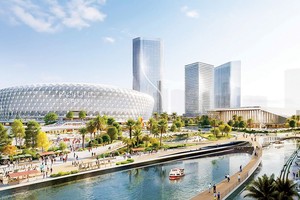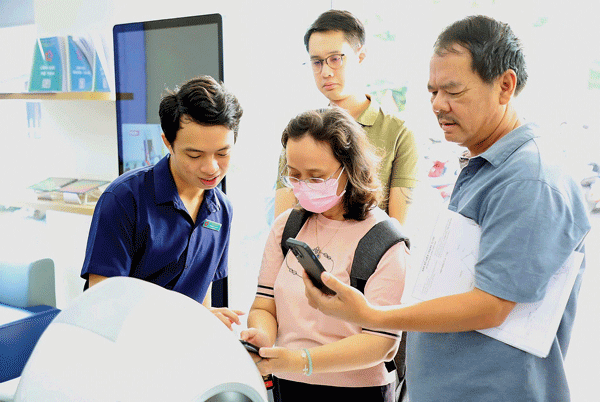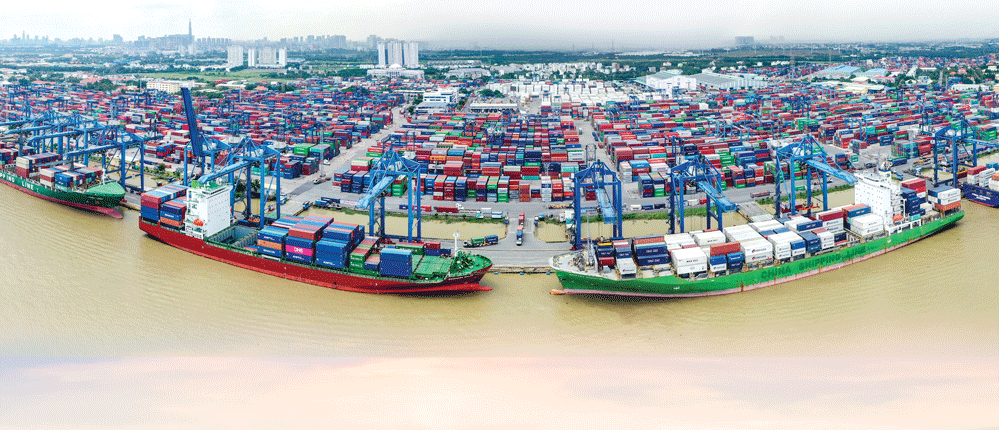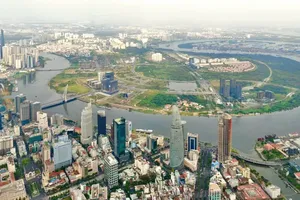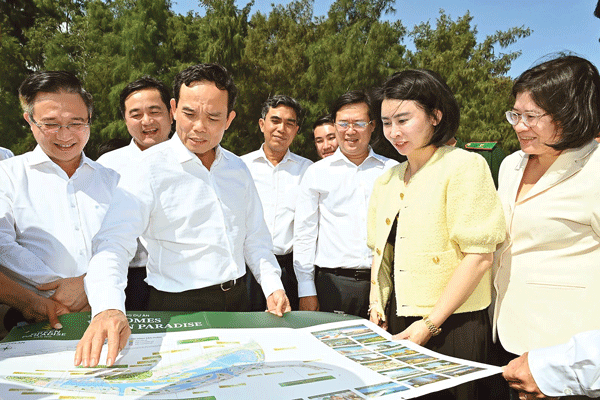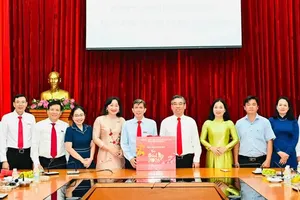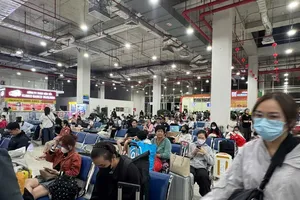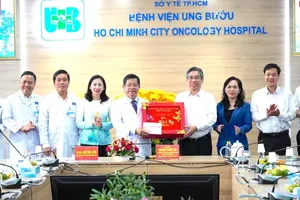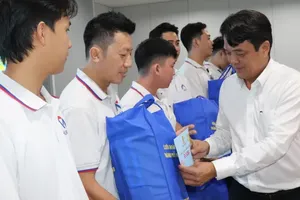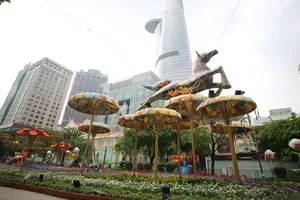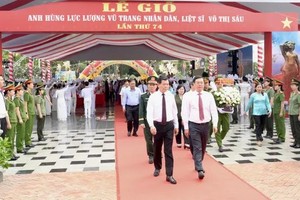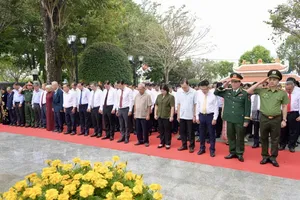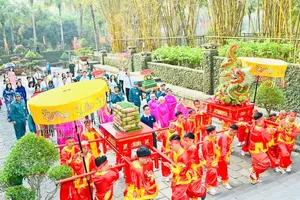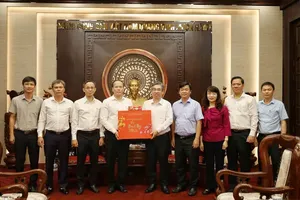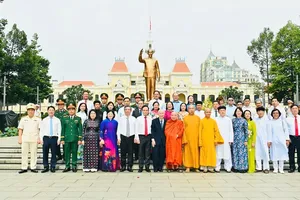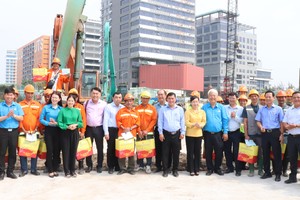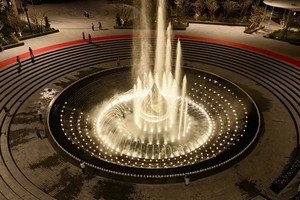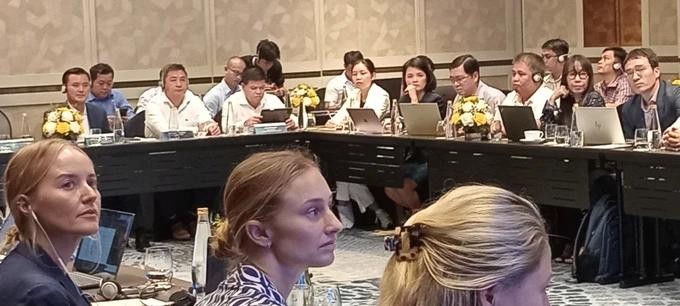
The city Department of Natural Resources and Environment in partnership with the United Nations Development Program (UNDP), hosted a workshop focused on ‘Advancing Sustainable Solutions for Waste Collection in Rivers, Canals, and Ditches’.
Deputy Director Bui Hoa An of the Ho Chi Minh City Department of Transport highlighted at the conference that the southern metropolis has 101 rivers and canals that are utilized for water transportation, spanning around 912km collectively.
In recent years, the city has focused on investing in upgrading, renovating and maintaining the waterway system to ensure smooth traffic
The city has recently prioritized improving, refurbishing, and upkeeping the waterway system to guarantee efficient transportation.
Nevertheless, the environment has been contaminated by waste, water hyacinth, and vegetation, leading to water flow blockages that impact traffic, passenger transportation, and water tourism.
The Ho Chi Minh City People's Committee has been addressing the issue by assigning the Department of Transport to manage the removal of garbage, water hyacinth, and weeds from five waterways since 2019, employing manual collection techniques and crane equipment introduced in 2013.
To promote environmental sanitation in rivers, canals, and ditches, the Department of Transport advises the City People's Committee to establish a framework of standards and unit pricing to facilitate comprehensive waste collection in these areas.
Additionally, it is essential to develop policies that encourage the adoption of modern and advanced technologies. In the short term, efforts should concentrate on high-density urban routes and inter-provincial roads that experience significant waste accumulation. There should be coordinated efforts among various departments, responsible agencies, districts, and towns to ensure effective garbage collection from drainage systems and waterways.
Deputy Director Ho Kien Trung of the Department of Pollution Control at the Ministry of Natural Resources and Environment noted that the nation currently produces approximately 68,000 tons of domestic waste daily, with only 88.34 percent being collected and treated, leaving 12 percent unaddressed.
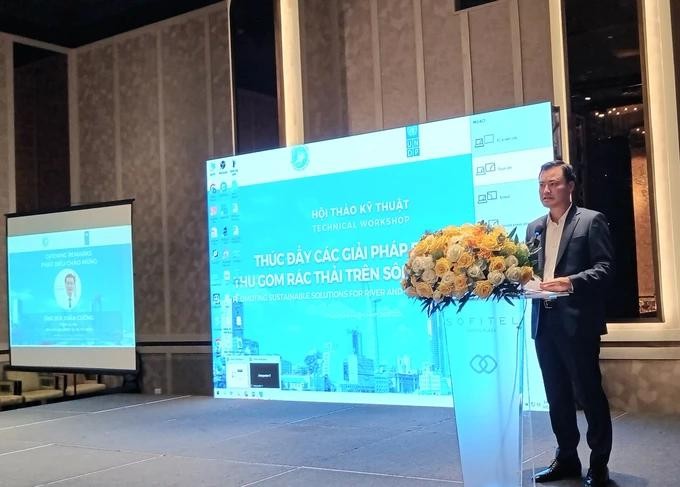
This is the source of trash that contaminates the environment, posing a risk of dissemination into rivers, canals, and ditches. Effective resolution of this issue necessitates stringent oversight by local authorities and collaboration from related partners.
Deputy Resident Patrick Haverman, a Representative of UNDP Vietnam, stated that by collecting debris in rivers, plastic waste is directly prevented from entering the sea from the mainland.
Advancing innovation and garbage collection technology in waterways is crucial and optimizing waste management in the city would substantially aid in mitigating plastic waste pollution in the environment.
UNDP wishes to continue to cooperate with Ho Chi Minh City in solid waste management projects, especially waste sorting at source and building material recovery facilities.
Speaking at the workshop, Vice Chairman of Ho Chi Minh City People's Committee Bui Xuan Cuong said that in order to achieve the goals of improving the environmental quality of rivers, canals and ditches, controlling waste sources, including the collection and treatment of wastewater and urban waste, is a task that the city is currently striving to carry out.
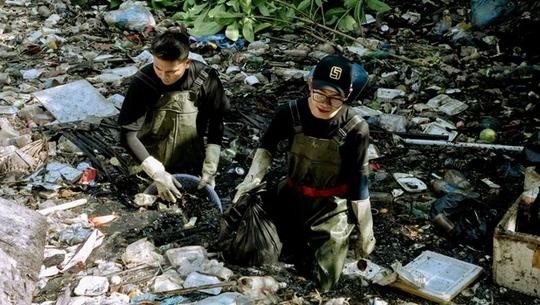
The southern largest city, on the one hand, has adopted preventative measures against indiscriminate discharge, maintains regular collection and treatment of waste on rivers, canals, and ditches but on the other hand, the City simultaneously has focused on implementing solutions to minimize waste generation from the source, gradually standardize and improve the efficiency of waste collection, transportation, and treatment in the city, ensuring that all of households waste in the city is collected and treated according to the present regulations.
The Vice Chairman of the City People's Committee also highly valued opinions of experts, scientists, representatives of departments, localities, organizations and businesses that have been voicing their useful proposals to gradually solve the global problem - ocean plastic pollution, starting with sustainable solutions for waste on rivers and canals, for the environment and for the quality of life of us and future generations.
